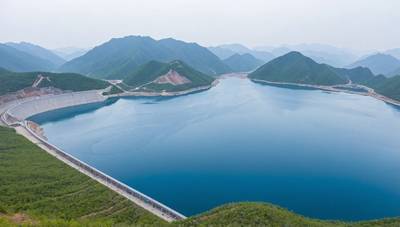Industry body: China is on track to surpass 2030 pumped-storage hydro target by 8 percent
The International Hydropower Association (IHA), which represents the hydropower industry, said that China will surpass its 2030 target for pumped-storage hydropower by more than 8 percent and could reach 130 gigawatts by the end decade.
In a press release, the IHA stated that in 2024, the world's second largest economy will add 7.75 GW to its installed pumped-hydro capacity, bringing it up to 58.69GW. It added that more than 200 GW worth of these projects are currently under construction. This represents a third the total number of projects of this type under development worldwide.
China has called for more investment in energy storage. This is crucial to balance the supply and demand of renewable electricity when wind and solar farms are producing too much or not enough for the grid distribution system to handle.
Last year, the country again broke its own record for new wind and sun power installations. It achieved its 2030 target six years earlier than expected.
Storage providers, including pumped-hydro operators, have more chances to make money by selling electricity when they can charge higher prices because the government has disincentivised electricity use at peak demand times.
The IHA reported that the global hydropower capacity will grow by 24.6 GW between 2024 and 2028, with 16.2 GW being conventional hydropower, and 8.4 GW being pumped hydropower. It also noted that 475GW of conventional projects were in various stages.
IHA released a statement that said, "This year's World Hydropower Outlook shows global new capacity accelerating after several stagnant years."
IHA stated that despite the momentum, hydropower project in East Asia and Pacific outside China are limited by financing issues, high upfront costs, and long payback times, which limit private sector participation.
The IHA also added that "Regulatory and permit delays are also hindering progress in countries like Australia, Indonesia, and Vietnam where complex approval processes and land rights issues create uncertainty." (Reporting and editing by Jamie Freed; Sudarshan Varadan)
(source: Reuters)


